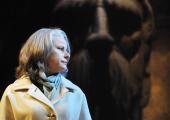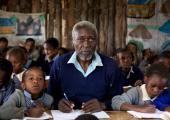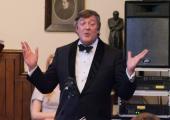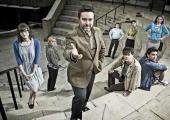Educating Essex, Channel 4
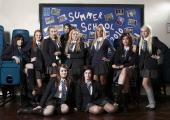
Fly-on-the-blackboard documentary about secondary school life
Education, education, education. Have we ever worried so much about how, and what, and why, and where our children are being taught? We’re so desperate, it seems, for some guidance on the matter that we barely raise an eyebrow about turning their trials and tribulations into fodder for reality television. Never mind the dubious ethics, we might learn something.

